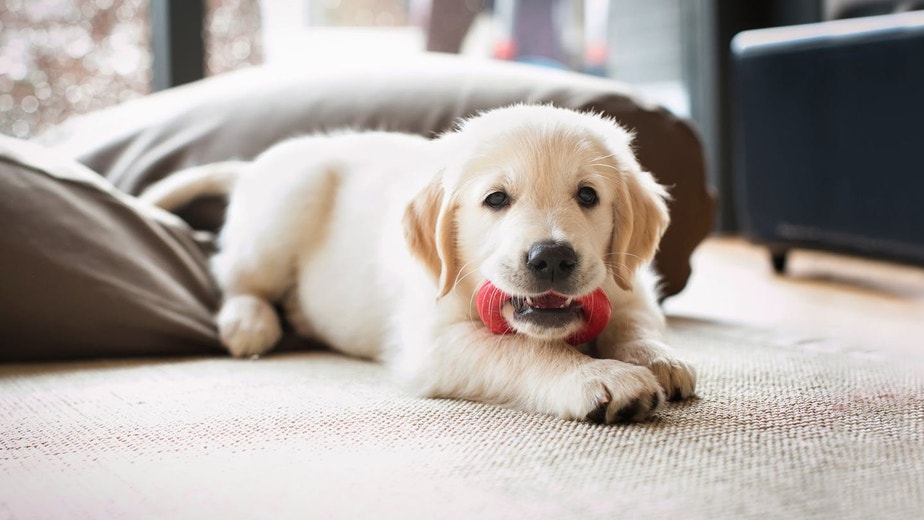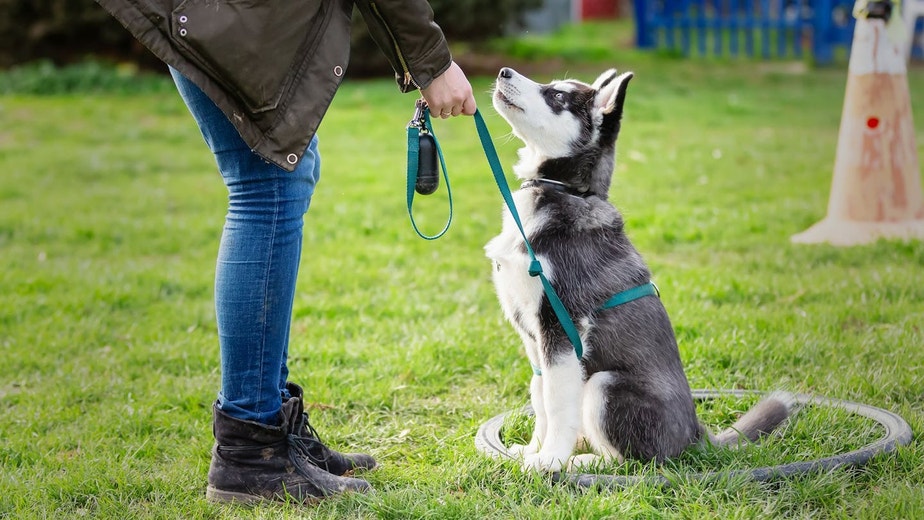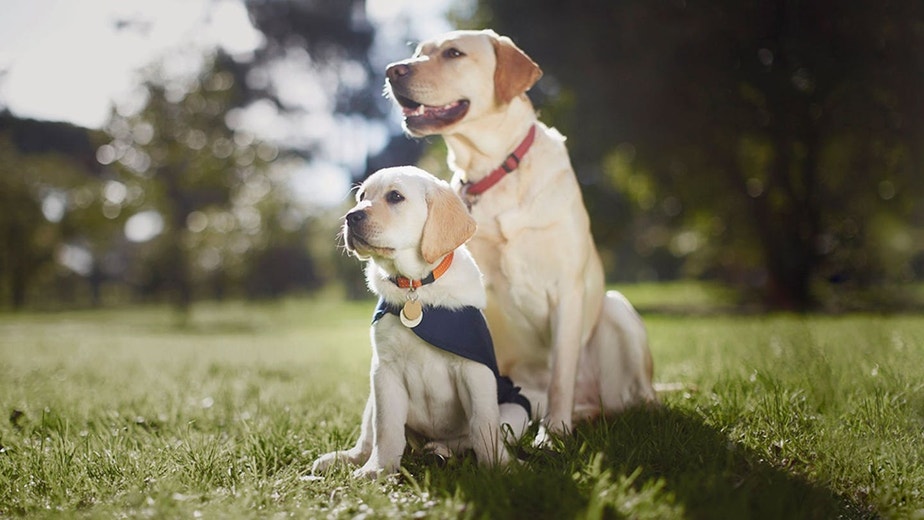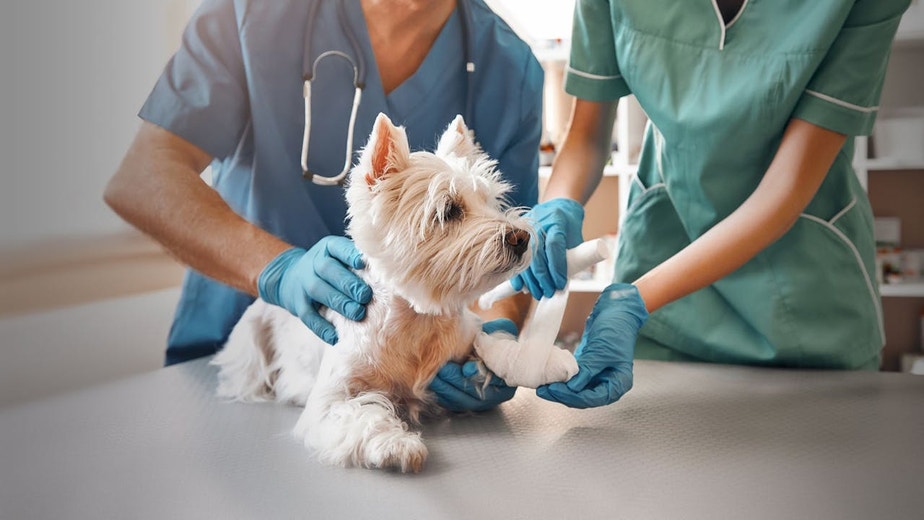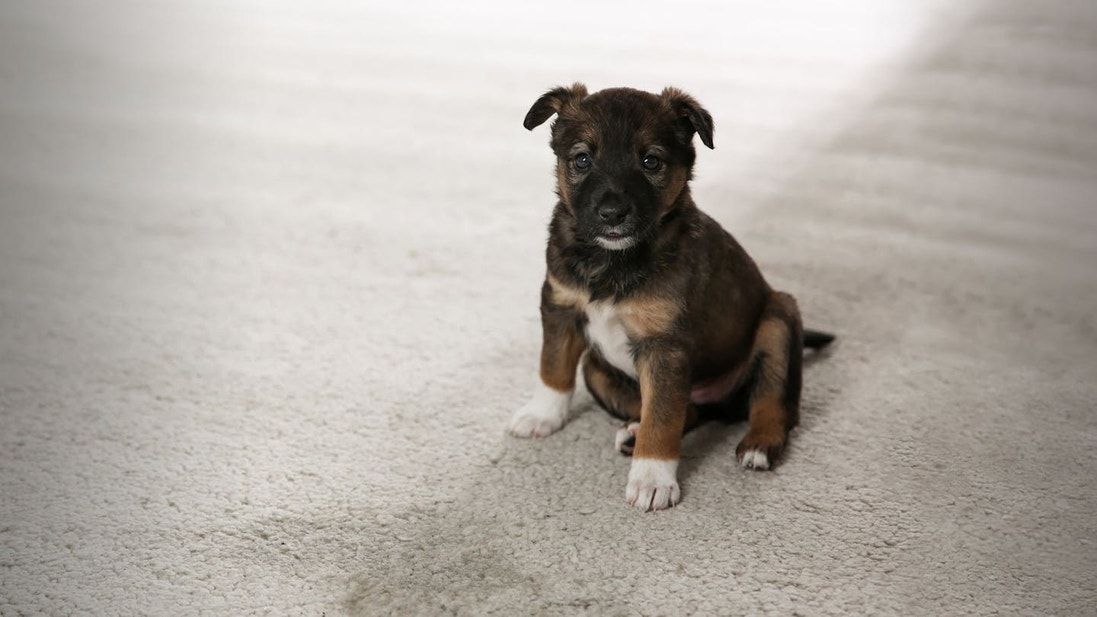
Puppy Potty Training and House Training
Bringing a new puppy or dog into your home is always an exciting and happy event. One of the first house training tasks is to ensure that your new companion learns to reliably eliminate outdoors. Maintaining good supervision and following a few general guidelines will lead to rapid puppy potty training success with few accidents along the way!
GENERAL PUPPY HOUSE TRAINING GUIDELINES
Designate a puppy potty training area outdoors: Before bringing your new dog home, select an area of your yard or near your home that will be consistently used for your dog’s elimination. Each time that you take your new puppy or dog outside for elimination, use the same door, and take them to the same general outdoor area. Many owners introduce a phrase such as, “Do you want to go out?” immediately before taking their puppies outside to eliminate. Always use the same words and tone to indicate that you are going outside for elimination, and select another phrase for going outside for fun activities such as walking or trips to the park.
Positive results: Accompany your dog outside so that you can be sure that they eliminate. As they begin to sniff and circle or starts to urinate, introduce a cue command such as “go potty” or “hurry up.” Eventually this command can be used to encourage your dog to eliminate when you are traveling or in a rush. Stay with your dog and praise them quietly as they eliminate. (Note of caution: Keep your praise moderate; too much enthusiasm may interrupt them.)
Frequent trips: Without question, the best way to prevent accidents in the home is to take your new puppy or dog outside regularly and often. For puppies between 7 and 12 weeks of age, this means every 20 to 30 minutes during periods when your puppy is active and playing! Use 30 to 40 minutes as a guide for adults who are not house trained. In addition, always take your dog outdoors to eliminate immediately after waking up in the morning or after a nap, after meals, after all playing or training sessions and right before you put them to bed for the evening. Although it may seem that you are spending all of your time taking your pup in and out during those first few weeks, it will be time well invested. You will find that your new dog rapidly learns that outdoors is the place for elimination and has minimal indoor accidents!
Establish a regular feeding and exercise schedule: Feed your dog two meals per day (three for puppies, until they are 6 months of age). Feed at the same time each day; dogs that are fed on a consistent schedule become regular in their elimination habits, which helps with house training. Avoid feeding a large meal prior to confinement. Similarly, your dog’s last feeding of the day should be several hours before bedtime. Dogs thrive on a daily and regular exercise routine; set aside time each day for walks, play and obedience training. This will not only help with house training but is also important for creating good house manners.
Supervision, supervision, supervision: The best way to avoid accidents, especially early in training, is to keep your new puppy or dog in the same room with you. A crate or small puppy-proofed room can safely confine them when you cannot closely supervise. Baby gates are also helpful to control movement throughout the house and to aid supervision. As your dog becomes more reliable in them elimination habits, you can gradually increase his freedom.
WHEN HOUSE TRAINING ACCIDENTS HAPPEN
Do not punish: If your puppy is well supervised and taken outside frequently, accidents should be rare. However, if you do find an accident or observe your puppy eliminating inside, never punish or reprimand them in any way. Although many owners believe punishment is helpful in house training, it can actually hinder progress. This is because puppies do not generally associate the presence of feces or urine with the act of eliminating. Punishing dogs for accidents causes them to associate the punishment with the location and with the owner but does not influence future elimination habits.
React calmly: If you witness your puppy eliminating in the house, quietly interrupt them and take them outside to finish. (Even in this case, do not use a correction or say “no” because you will only teach your dog to avoid eliminating in your presence, inside or outside.) Clean the spot thoroughly with a biological cleaner designed for pet waste and make a note to intensify your supervision techniques. If your dog has eliminated in the same area of your home several times, prevent them access to that area for several months, even after cleaning the area thoroughly.
PUPPY POTTY TRAINING SUCCESS
Essential rules: The three most important tenets of house training dogs are supervising, making frequent outings and instilling a regular schedule. Preventing accidents in the house and establishing a strong, positive association with elimination in outdoor areas are the most effective means of house training your new dog and avoiding house training problems later.
Ensuring long-term puppy house training reliability: After house training is complete, young dogs and adults should always be provided with multiple opportunities per day to go outside for elimination and should be maintained on a regular feeding and exercise schedule. Always err on the side of good judgment, taking your dog outside more frequently than may be necessary.

